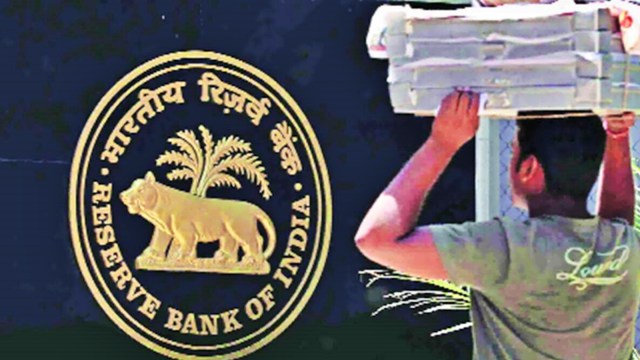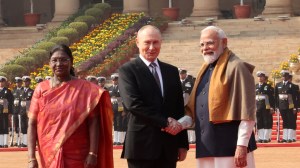Amid volatile price outlook, MPC set to remain on ‘high alert’ on inflation
The Monetary Policy Committee members, while keeping the repo rate unchanged at 6.50 per cent, said the fight against inflation is far from over amid concerns over repeated supply shocks.
 “Having taken a pause during the last few policies, there could be an argument for a change in stance to neutral. I feel this is not the right time,” Ranjan said.
“Having taken a pause during the last few policies, there could be an argument for a change in stance to neutral. I feel this is not the right time,” Ranjan said.
Members of the Reserve Bank of India’s rate-setting panel flagged the need to remain on “high alert” to counter price spikes, including in vegetables, that may derail the “disinflation process”, showed the minutes of its meetings held from December 6 to 8
The Monetary Policy Committee (MPC) members, while keeping the repo rate unchanged at 6.50 per cent, said the fight against inflation is far from over amid concerns over repeated supply shocks.
“In the immediate months of November and December, a resurgence of vegetable price inflation is likely to push up food and headline inflation. We have to remain highly alert to any signs of generalisation of price impulses that may derail the ongoing process of disinflation,” RBI Governor Shaktikanta Das wrote in the minutes.
RBI Deputy Governor Michael Debabrata Patra said the monetary policy reaction function needs to assign a higher weight to inflation relative to growth in a forward-looking sense. “Accordingly, I vote to maintain (the) status quo on the policy rate and continue with the stance of withdrawal of accommodation,” he said.
One of the MPC members differed on the ‘withdrawal of accommodation’ policy stance, suggesting a ‘neutral’ stance instead.
Jayanth Varma, who, too, voted for keeping the repo rate at 6.50 per cent, expressed his reservations on the policy stance. “I believe that a stance is not needed at all at this stage. If at all there is a stance, it should be neutral,” Varma wrote in the minutes, released Friday.
He said that three years of high inflation do justify a strong anti-inflationary monetary policy, but a real rate of 2 per cent clearly exceeds the optimal rate.
Das, however, said the focus on ‘withdrawal of accommodation’ should continue.
While voting for keeping the policy repo rate unchanged, the RBI Governor said: “We have to remain vigilant and ready to act effectively in our journey towards 4 per cent inflation target.” Any shift in policy stance now would be premature and risky, Das said.
While food inflation has receded from the highs seen in July, it remains elevated, he said, adding that the overall inflation outlook is expected to be clouded by volatile and uncertain food prices and intermittent weather shocks.
The consumer price-based inflation (CPI), or retail inflation, moderated to 4.9 per cent in October from 7.4 per cent in July. In November, CPI increased to 5.6 per cent
One of the external members of the MPC, Ashima Goyal, voted for keeping the repo rate and the stance unchanged, in order to watch the impact of an expected rise in food inflation over the next couple of months, since repeated supply shocks are a concern.
MPC member and RBI’s executive director, Ravi Ranjan, said the best way monetary policy can support this high growth trajectory is by maintaining its commitment to price stability. While monetary policy has succeeded in getting headline inflation into the tolerance band, it is still above the target and continues to remain vulnerable to supply shocks.
Given that inflation remains above target, our stance of withdrawal of accommodation also has to continue to aid fuller transmission, he said.
“Having taken a pause during the last few policies, there could be an argument for a change in stance to neutral. I feel this is not the right time,” Ranjan said.
“Apart from being premature, a change to neutral stance may have to bear the brunt of the collateral damage caused by wrong signalling, particularly with looming uncertainties on the horizon and when market expectations are running ahead of policy intent,” he said.
Shashanke Bhide said that given that inflation remains well above the target over the short term, with the projected headline CPI rate of above 5 per cent up to Q1 of 2024-25, there is a need to continue the policy support for sustaining the trajectory to the target.
- 01
- 02
- 03
- 04
- 05































